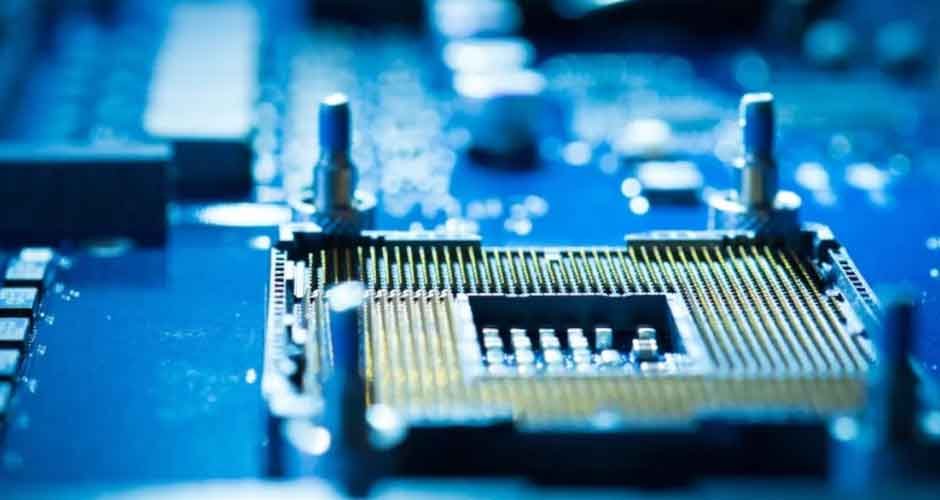In 2024, FPGA (Field-Programmable Gate Array) technology significantly impacts the tech scene. And there are clear reasons: it provides unparalleled flexibility and efficiency across various uses. As companies aim for quicker and more effective data processing and algorithm implementation, FPGA development services offer an optimal solution. In this blog post, we’ll explore Field-Programmable Gate Array solutions and their seven major applications.
What Are FPGA Solutions?
FPGA solutions are chips you can program after they’re made to perform specialized computing tasks. Unlike normal processors that follow a fixed order of operations, FPGAs let you rearrange these tasks to work faster on specific jobs. This makes them ideal for tasks that need speed, like
- processing a lot of data quickly,
- analyzing things in real time,
- or adapting fast to new tech needs.
However, working with FPGAs comes with a few common challenges:
- Complexity in Programming and Design
Programming FPGAs is not straightforward. It requires a deep knowledge of hardware design, as you’re designing how the chip works at a fundamental level. For teams more familiar with software development, it can require a steep learning curve.
- High Initial Cost and Development Time
Starting with FPGAs involves more upfront investment compared to other technologies. The cost of the hardware, combined with the time and resources needed to develop and test FPGA designs, can add up.
- Limited Reusability and Scalability
An FPGA configured for one project may not be suitable for another. This limitation affects reusability. Scaling FPGA solutions can also be challenging. As the complexity of the task increases, so does the complexity of the design, requiring more time and expertise to adapt and scale solutions.
7 Uses Of FPGA Development Services
Given the challenges described above, it is no wonder many businesses today prefer to use fpga development services rather than develop solutions in-house. Let’s review some practical tasks FPGA hardware can solve for a business.
1. Receiving Market Data
Imagine your business can know market changes directly from the source without delay. That’s what FPGA development services offer. They equip your systems to handle real-time market data with almost zero lag.
As a bonus, the setup involves advanced techniques to clean, decode, and verify the data. This way, your platforms only deal with information that’s accurate and directly relevant to your operations.
2. Message, Symbol, and Content-Aware Filtering
Now, consider the sheer volume of data your systems process daily. Under such pressure, it’s difficult to keep processing speedy and accurate. It’s where FPGAs come in. They can intelligently sort through this data to prioritize crucial messages, symbols, and content. It means your system won’t get bogged down by irrelevant information.
3. Data Decoding and Normalization
Dealing with data in multiple formats can be a nightmare. With FPGAs, your systems can automatically translate and standardize diverse data formats upon arrival. This reduces the complexity and workload for your downstream systems. Your data is thus easier to use and analyze.
4. Order Book Handling
FPGA development services update your order books in microseconds to reflect live market conditions. This allows for informed decision-making based on the most current data. That is, you can conduct your real-time updates without fail.
5. Trading Strategy Execution
To execute complex trading strategies, you need rapid calculations and adjustments based on live data. FPGAs offload these intensive tasks from your main computing resources. This way, you can finally pursue those strategies that were too complex or resource-heavy for traditional systems. Developers program these strategies into the hardware design to make your trading operations faster and more efficient.
6. Pre-trade Check
Compliance and risk management are critical, and FPGAs help with this, too. The systems can instantly verify the compliance of potential trades and ensure they meet all regulatory and risk criteria before execution. In this manner, you stay compliant without slowing down.
7. Order Generation
FPGA development services empower your systems to generate and place orders in milliseconds, literally. With them, you can now catch opportunities that flash by in the blink of an eye. This allows you to capitalize on quick market movements. Needless to say, this can significantly enhance returns in the long run.
***
As you can see, FPGAs have a lot to offer to businesses today. Processing real-time market data with unparalleled speed or executing sophisticated strategies are only a few to list. And if you worry about any associated challenges, remember that you can always outsource the development and implementation tasks to a skilled FPGA team.






